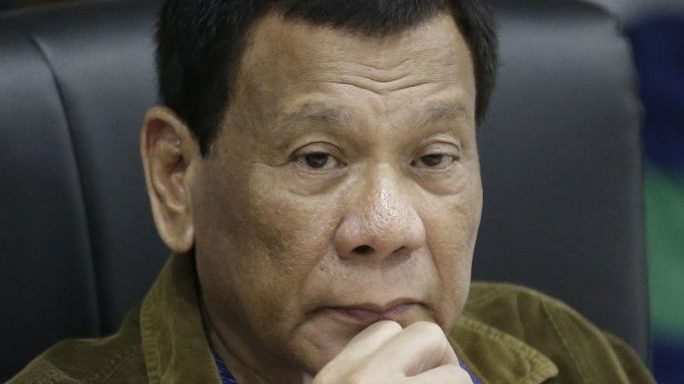While conveying compassion and solidarity with his citizens, Filipino President Rodrigo Duterte’s visit to a Catholic cathedral where Sunday’s bomb attack took place is also another sign of his odd and, at times, volatile relationship with the Catholic Church.
Visiting Our Lady of Mount Carmel Cathedral in Jolo on Monday, Duterte vowed to “crush” the “godless” criminals who carried out the attack, which took place Sunday morning as Mass-goers were gathered inside the cathedral for worship, leaving 20 dead and 81 wounded.
The Islamic State has claimed responsibility for the attack, with most observers assuming the reference was to the local Islamic terrorist organization Abu Sayyaf. Police have since indicated that the brother of a slain Abu Sayyaf leader is among the suspects in the crime.
During his visit to the cathedral, Duterte met with top military, defense and police officials and attended a wake for victims.
In a previous statement, he said he would pursue “to the ends of the earth the ruthless perpetrators behind this dastardly crime until every killer is brought to justice and put behind bars. The law will give them no mercy.”
Though his reaction was swift and his language forceful, the scene was a paradox given Duterte’s tumultuous relationship with the Catholic Church and his often hostile language toward the country’s priests and bishops.
Duterte has been at odds with the Catholic Church in the Philippines since his election in 2016, with many ecclesial leaders issuing vocal condemnations of his bid to introduce the death penalty and his crackdown on drugs. Thousands of people have been killed in extrajudicial executions related to the drug trade.
Many have said Duterte’s frequent remarks about killing drug dealers led to an “open season” for security forces to murder with impunity.
In terms of the Church itself, Duterte has often issued burning critiques and insults, calling God “stupid” and indicating that people shouldn’t go to Mass.
On Dec. 29, 2018, he vowed that his attacks against the Church would continue until it “corrects itself,” mostly on the issue of clerical sexual abuse. If the Church fails to clean up its act, he said “I will remain its opponent … and I will continue to attack it.”
In some of his more violent language, Duterte, who claims to have been molested by a priest when he was a young student, said bishops should be “killed.” The statement came just days after he said a bishop named “David,” believed to be Bishop Pablo Virgilio David of Caloocan, a longtime critic of the president, should have his “head cut off.”
Though Duterte’s spokesman blew the comments off as mere “hyperbole,” they were met with fierce criticism from the Church.
Earlier this month Father Jerome Secillano, spokesman of the Catholic Bishops’ Conference of the Philippines, spoke to the the ABS-CBN News Channel saying Catholic faithful in the Philippines are being insulted.
“Imagine being called ‘stupid.’ Maybe it is not the people who are being called stupid, but it is God in whom we believe. It is God, who is the object of your faith. Catholics should be hurt by this,” Secillano said and called Duterte’s comments “insensitive.”
“It’s not only about the hierarchy of the Church that’s being attacked but it’s already the doctrine of the Catholic faith,” he said. “It is not only the priests or the bishops who should be affected by this but even the followers.”
Bishop Arturo Bastes of Sorsogon has also blasted Duterte’s comments, telling the Philippine Daily Inquirer that the president has “uttered absolutely silly things…And his ‘fans’ consider his murderous words as a mere joke.”
“Is it a joke to advise people to kill?” Bastes asked, adding that “there should be a mass movement among decent Filipinos to make him desist from speaking like a devil.”
However, none of that has stopped Duterte’s continued hostile remarks, the most recent of which came on Jan. 11, when he said the Catholic Church should allow priests to have boyfriends, adding that “only I can say bishops are sons of b*****s, damn you. That is true. Most of them are gay.”
Presidential spokesperson Salvador Panelo later called the statements “self-defense,” saying Duterte is “only defending himself from attacks.”
Given that the back-and-forth between Duterte and Church leaders in the Philippines has been ongoing for more than two years, it’s doubtful that Sunday’s attack and Monday’s visit to Our Lady of Mount Carmel will really change much.
Yet regardless of how survivors of Sunday’s attack might feel about Duterte, it’s possible that having their president there after an event that shocked and traumatized the whole community might just be enough for none of that to matter for a day.

